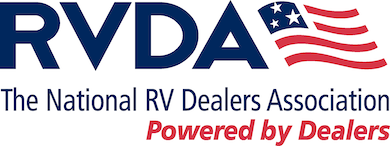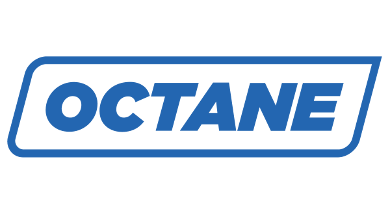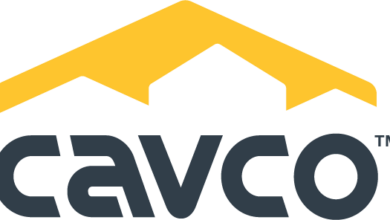The Importance of Follow-Through in Sales
6 steps dealers can use to help a customer trust that you will do what you say.

There are many steps that need to happen correctly for salespeople to close a deal with customers when the weather is favorable, the right product is in the lot and the economic conditions are strong. However, the aftereffects of COVID created additional issues like high interest rates, a great deal of leftover inventory and salesperson turnover that dealerships are now grappling with.
In my latest book titled “No Trust, No Sale” (available on most online booksellers’ websites), I wrote extensively about how building trust with customers is the one critical component that must be maintained throughout any customer interaction, or the chance of closing a sale will dramatically decrease.
There are many things that can contribute to building trust with customers, but there is one very important thing that can just as quickly ruin the comfort level customers must feel to take their credit card out for the down payment: Poor follow-through.
I have seen so many salespeople over the years who had most of the key components to be successful in sales, but lacked the ability, the initiative and/or the commitment to have great follow-through with their customers. There are some weaknesses salespeople can get past with their customers, but a lack of follow-through isn’t one of them.
What is great follow-through? Simply put, it’s doing what you said you were going to do, when you said you were going to do it. It sounds so simple yet is so hard for some salespeople. As you read this, I ask you to look at yourself in the mirror and ask: How is my follow-through?
With customers, there is no middle ground in how they perceive follow-through. It’s either great or it’s horrible. It’s an “on/off” switch. You either have it or you don’t — and if you don’t, you need to get to work now to implement steps to improve your follow-through. If not, it will continue to be the biggest obstacle to building trust with your customers. If there is no follow-through, there will be no trust, and when there is no trust, customers will internally ask themselves many questions about their salesperson:
- Are they going to try to sell me the wrong thing?
- Are they going to try to sell me something we can’t afford?
- Are they going to try to sell me something the sales manager wants to move off the lot?
- Will they be dishonest with me just to get a sale?
Many years ago, a well-known neuroscientist and respected author named Antonio Damasio did research that led him to the conclusion that we are “not thinking machines that feel … we are feeling machines that think.” Trusting someone else (like a salesperson) is a feeling, and much of that conclusion will come from great (or horrible) follow-through.
Here’s something else to consider: human nature being what it is, a salesperson can do a great job following up six or seven times in a row, but forget to follow up just one time and the customer will begin to question their commitment, their word and maybe even their honesty.
It’s a short rope we all have with customers, and once it’s gone, it’s not coming back.
Here are a few simple steps to ensure great follow-through with customers.
- If you don’t know the answer, say you don’t know the answer.
One of the biggest issues that customers have with salespeople is that if they don’t know an answer, they will make one up to sound smart. New salespeople don’t have many answers because they are just starting and learning. If you don’t know the answer or are not 100% positive of the answer, don’t make one up, don’t stretch the truth and for goodness’ sake, don’t lie. Say that you don’t know, and customers will respect you for being honest (because some salespeople aren’t).
- Stop what you’re doing and get the answer — on the spot.
If you don’t know an answer to a question, stop the presentation and immediately call the sales manager, a manufacturer rep, the service department or another resource needed while the customer is standing in front of you and get them the answer they need. After this happens a few times, the customer will respect that you are honest enough to say that you don’t know the answer to that question but will take immediate action to get one. This will help the customer to relax, trust you and appreciate your attention to detail and follow-up. Customers will also listen more intently to anything you say after that, because they will perceive you to be honest.
- Write the question down. Make a note to follow up and get back to the customer before they leave.
If it’s an answer that is needed but not immediately, make a note to get the answer for them, regardless how small or insignificant the question is. Then get them the answer before you part company that day. This simply creates another opportunity for you to prove that no question is too small to deserve an answer. Chances are that while looking at RVs, they will forget they had a question but will be impressed that you didn’t forget, which also solidifies their perception of your honesty and commitment to them.
- If you can’t get the answer, commit to a day and time to get back to them with an answer.
If resources aren’t available to get an answer that you need that day, give the customer the specific day and time (that’s convenient for them) when you will get back to them by. A good way to say it is “I will call you tomorrow at 3 p.m. with the answer to this question.” If for some reason you cannot get the answer by that day and time, call them tomorrow at 3 p.m. and say that. Then recommit to another day and time to get back to them. This will also reinforce their feeling that you will keep your word.
- Explain what you’re planning to do next and ask for permission.
In each step of the sales process, give a brief comment of what you plan to do next, no matter what that step is. If you would like to get more information about where they plan to RV and how they plan to use it, tell them and ask if that is OK. If you plan on showing them three RVs that day, starting with the least expensive one, mention that and ask for their permission by saying something like “Sound good?” and wait for a response. This will reinforce their perception of your follow-through and help them feel comfortable that you aren’t going to do anything that is a surprise to them and that you’re not going to sneak up on them with anything.
- Quickly recap their observations after looking at each RV in the lot.
Each time you walk in an RV to present to them, upon walking out, stop for a minute to recap what they liked and did not like with that RV before moving onto the next. This will confirm some of the positive things you said about that RV. This also helps to solidify your words in their mind and reinforce why you showed it to them and how it might benefit their camping/RVing experience.
Taking the steps above during a customer visit will help blend your words with your actions and greatly improve their perception of your follow-through on anything that may come up in the shopping/buying process.
Here are a few final tips that will help you build credibility with great follow-through:
- Address the biggest issues or obstacles first. Doing so will make overcoming any other objection seem much easier.
- Make notes of key things the customer said and read it back to them during the visit to verify. This will show them you will listen closely to them and not forget things that matter to them.
- For every question that comes up during a customer visit, resolve them immediately, which will build your credibility as a “go-to” person and problem-solver.
- Whenever possible, don’t move on to the next step until you follow up on the issue or question at that moment. That will help them close that issue in their mind and reduce the possibility of objections later in the process.
Completing the steps above will form great habits that will help make follow-through a solid strength for you, one that every customer you work with will notice immediately.


